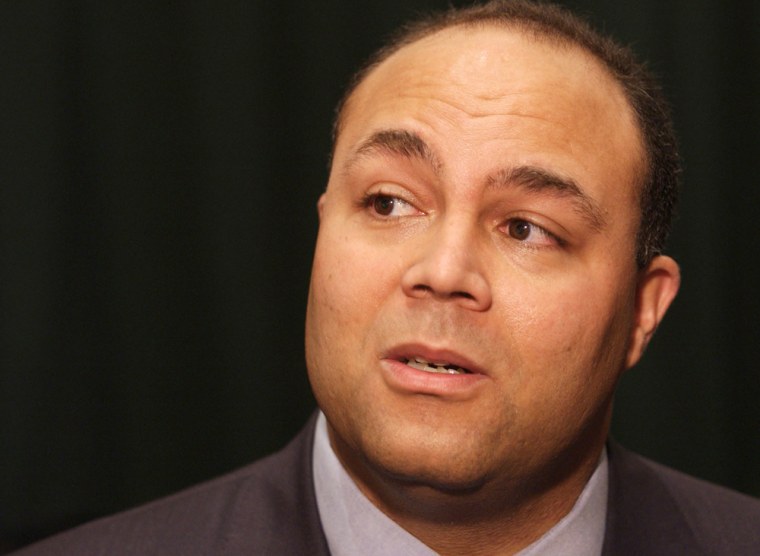FCC Chairman Michael Powell said Tuesday that he would seek broad regulatory authority for the federal government over Internet-based telephone services to avoid stifling the emerging market.
Powell told a receptive audience at an industry conference that letting states regulate Voice over Internet Protocol,or VoIP, services would lead to a patchwork of conflicting rules like those which have ensnarled the traditional phone business for decades.
To do so, Powell said, "is to dumb down the Internet back to the limited vision of government officials. That would be a tragedy."
After his speech, Powell told reporters he expected to introduce a proposal to the full Federal Communications Commission in less than a month, and definitely before a new Congress begins its session in January.
"We cannot avoid this question any longer," he said. "It is very likely that treatment of VOIP will have some of the farthest reaching consequences of anything this commission has done or will do."
Powell, whose office has been petitioned by Republican members of Congress to take action on the jurisdiction question, spoke two weeks before a presidential election that could jeopardize his position as FCC chairman.
The Republican was appointed to the commission by President Clinton in 1997 and became chairman when President Bush took office in 2001.
Powell cited a study by a research firm, The Yankee Group, that projects 1 million VoIP subscribers nationwide by year's end, compared with just 131,000 last year.
The technology "has ignited a fire under a stalled and depressed industry," Powell said, referring to traditional landline phone carriers.
Powell, who reiterated his belief in minimal regulation of VoIP services, said questions of its taxation and connectivity to 911 emergency assistance are best left to the federal government because the technology erodes geographic barriers.
Such barriers have led to a complex framework of regulations governing local and long-distance service for traditional landline phones.
While some issues involving voice quality and consumer accessibility remain to be worked out, VoIP service threatens to eventually overtake landline services by piggybacking on the existing, low-cost technology platform used for the Internet.
"There is no need to organize a regulatory regime around permits and prices and costs as we have done for nearly a century with common carriers," Powell added.
